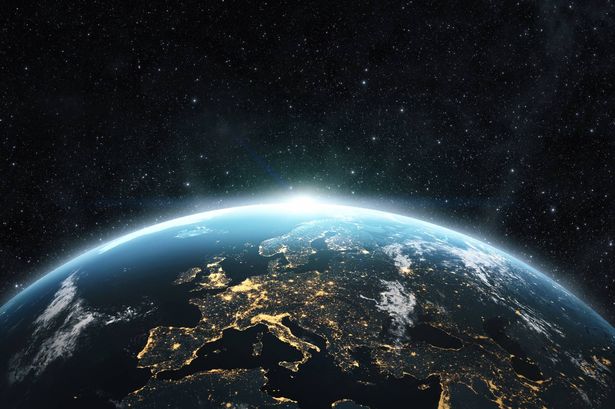Science
Harvard Scientist Claims Mathematical Proof of God’s Existence

Dr. Willie Soon, an astrophysicist affiliated with the Harvard-Smithsonian Centre for Astrophysics, has made headlines by asserting he has discovered a mathematical basis for the existence of God. His claims have sparked considerable debate and discussion on social media, as he proposes that a simple mathematical equation supports the notion of a divine force influencing the universe.
In a recent interview on the Tucker Carlson Network, Dr. Soon elaborated on his belief in the “fine-tuning argument.” This concept emphasizes the precise conditions necessary for life to flourish in the universe, suggesting that the improbability of these conditions occurring by mere chance points to a higher intelligence at work. The idea has its roots in the work of Paul Dirac, a physicist from Cambridge University, who first introduced this perspective in 1963.
Dr. Dirac argued that the mathematical beauty underlying the laws of nature indicates the presence of a supreme architect. He stated, “It seems to be one of the fundamental features of nature that fundamental physical laws are described in terms of mathematical theory of great beauty and power.” His assertion suggested that such intricacy implies a designer behind the universe.
During his interview, Dr. Soon echoed Dirac’s sentiments, claiming, “There are so many examples of the ever-present forces that allow us to illuminate our lives. God has given us this light, to follow the light and do the best that we can.” He likened his argument to the traditional analogy of a timepiece, where the existence of a complex clock implies the presence of a clockmaker. In this view, the complexity and order of the cosmos suggest an intelligent creator.
Despite the intrigue surrounding his claims, Dr. Soon’s views have not gone unchallenged. Critics of the fine-tuning argument raise important counterpoints. One significant counter-argument is that our understanding of the universe remains limited. While humans are carbon-based lifeforms, the possibility of different forms of life emerging from alternative elements in other universes cannot be dismissed.
Furthermore, skeptics highlight that improbable events occur frequently in nature. Given the vastness of the universe, the existence of our particular cosmos, no matter how unlikely, is still a reality. This perspective argues that chance alone could account for the conditions that led to life, without necessitating a divine influence.
As this discourse unfolds, the intersection of science and religion continues to provoke thought and debate. Dr. Soon’s claims have reignited conversations about the nature of existence and the potential roles of mathematics and philosophy in understanding the universe. The implications of his assertions may resonate beyond academia, touching on fundamental questions about belief and the nature of reality.
-

 Entertainment2 months ago
Entertainment2 months agoIconic 90s TV Show House Hits Market for £1.1 Million
-

 Lifestyle4 months ago
Lifestyle4 months agoMilk Bank Urges Mothers to Donate for Premature Babies’ Health
-

 Sports3 months ago
Sports3 months agoAlessia Russo Signs Long-Term Deal with Arsenal Ahead of WSL Season
-

 Lifestyle4 months ago
Lifestyle4 months agoShoppers Flock to Discounted Neck Pillow on Amazon for Travel Comfort
-

 Politics4 months ago
Politics4 months agoMuseums Body Critiques EHRC Proposals on Gender Facilities
-

 Business4 months ago
Business4 months agoTrump Visits Europe: Business, Politics, or Leisure?
-

 Lifestyle4 months ago
Lifestyle4 months agoJapanese Teen Sorato Shimizu Breaks U18 100m Record in 10 Seconds
-

 Politics4 months ago
Politics4 months agoCouple Shares Inspiring Love Story Defying Height Stereotypes
-

 World4 months ago
World4 months agoAnglian Water Raises Concerns Over Proposed AI Data Centre
-

 Sports4 months ago
Sports4 months agoBournemouth Dominates Everton with 3-0 Victory in Premier League Summer Series
-

 World4 months ago
World4 months agoWreckage of Missing Russian Passenger Plane Discovered in Flames
-

 Lifestyle4 months ago
Lifestyle4 months agoShoppers Rave About Roman’s £42 Midi Dress, Calling It ‘Elegant’









